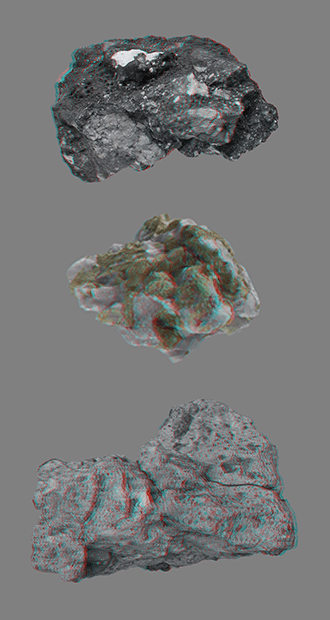NASA is celebrating the 50th anniversary of the Apollo 11 Moon landing in a variety of ways today, but here’s one you can experience no matter where you are, provided you have a modern smartphone. NASA’s Astromaterials Research & Exploration Science (ARES) department has released a fully detailed model of the first ever sample of lunar soil and rock, bagged by Astronaut Neil Armstrong during humanity’s first-ever trip to the Moon’s surface.
The rock is fully manipulable provided you visit this link on a smartphone with the capability to display interactive 3D field on the web, so you can twist and turn it using touch to get a better look. It has an incredible level of detail, (“research-grade,” in fact, according to ARES, and is part of a larger effort to make more of the organization’s larger library of lunar and antarctic meteroite samples available to more people, both for research and for education.
 These 3D models are created using extremely high resolution photography that captures high megapixel images of the actual samples from 240 different angles, which can offer resolution as detailed as just 30 to 60 microns (doubt the width of a human hair).
These 3D models are created using extremely high resolution photography that captures high megapixel images of the actual samples from 240 different angles, which can offer resolution as detailed as just 30 to 60 microns (doubt the width of a human hair).
But that’s just a start – software uses computer vision to ensure the 3D image provides accurate volume and text true information, and a process that involves the use of X-rays to get a cross-section image without actually slicing up the samples is also employed to ensure fully accurate representation.
If somehow you don’t have a smartphone but you do have those basic red/blue 3D glasses, then you can also view the image below in eye-popping detail. Meanwhile, NASA’s also opening up its lab of Moon rock samples to geologists for the first time, so they can study them directly in person, after years of keeping them under strict lock and key.